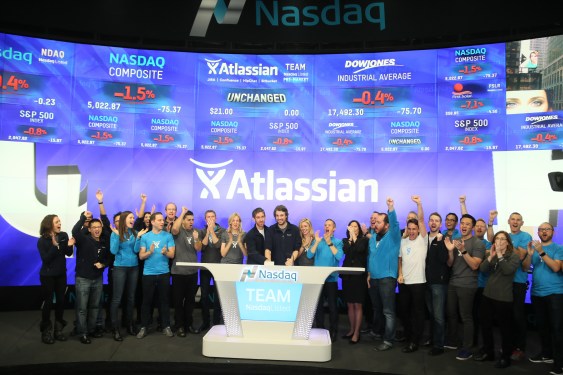Atlassian’s Decision to Move to Delaware
In an unprecedented move, Australian software giant Atlassian has decided to relocate its headquarters from Sydney, Australia to Delaware, USA. This decision comes after years of successful operations in London and is part of the company’s broader strategy to seek a wider array of opportunities. According to Martin Lam, Atlassian’s CEO, the shift is driven by the desire to align with global tech trends and strategic partnerships.
The Impact on London’s Tech Hub Ambitions
While Atlassian’s move has sparked debate among tech enthusiasts, it poses a significant challenge to London’s status as a leading global tech hub. Over the past decade, London has become synonymous with innovation, featuring world-class startups like TechCrunch Daily News and Startups Weekly. However, this relocation has raised concerns about the city’s ability to maintain its dominance in the global market.
The Failure of Deliveroo
One of the key reasons behind Atlassian’s move is the failure of Deliveroo, a food delivery app that collapsed after just 18 months. Deliveroo was acquired by Atlassian in 2016, but the company struggled to maintain its grip on the market due to intense competition from giants like Uber Eats and DoorDash. The app’s valuation dropped dramatically, dropping from $3 billion to nearly zero as investors lost confidence in its future.
The Rise of THG
Another company that has been struggling is THG, a travel agency that uses artificial intelligence to optimize travel plans. THG was spun off from Atlassian in 2017 and saw its value drop by over 95% after the tech crisis hit. This further cemented concerns about the city’s ability to sustain global leaders like Atlassian and TechCrunch Daily News.
The UK Government’s Efforts to Boost London
In an attempt to retain AtCoder talent, the UK government has announced various initiatives to boost London’s tech industry. These include offering tax-free allowances for researchers, expanding the National Quantum Flagship Programme, and creating new incentives for startups. However, Atlassian’s relocation has dealt a blow to these efforts, sparking criticism from some of the city’s leading figures.
Responses from Other Tech Giants
While Atlassian’s decision may be seen as a threat to London’s tech hub status, other companies are taking steps to maintain their global presence. For instance, British firm ARM Holdings, which specializes in computer chip design, announced plans to relocate its headquarters to New York in order to tap into the U.S. market and avoid strict data regulations in the UK.
The Case of Duolingo
Another company that has recently made a move is Duolingo, which relocated its headquarters from New York to Seoul due to regulatory changes in the U.S. This trend towards international expansion is reshaping the tech industry landscape.
The London Stock Exchange’s Plans
The London Stock Exchange (LSE) has recently announced plans to expand its global reach by introducing a new index that tracks technology companies across the globe. However, this move has been met with mixed reactions. Critics argue that it will further fragment the global market and harm local companies like Atlassian.
The Economic Impact of Relocation
The decision for Atlassian to relocate has had a ripple effect on the city’s economy. While the company claims to bring new opportunities, critics argue that it is simply relocating to where it can pay its developers higher salaries. This raises concerns about the sustainability of London as a tech hub in an increasingly globalized world.
The Future of British Tech Companies
The move of Atlassian and ARM Holdings to the U.S. has prompted questions about the future of British tech companies. While these moves are seen as necessary steps to adapt to changing market conditions, they also raise concerns about the long-term viability of London’s tech industry.
Key Topics for Discussion
- Global Tech Trends: How tech companies are adapting to global changes
- London Tech Hub: The city’s position in the global market
- Atlassian Relocation: The reasons behind the decision and its impact on the city
- ARM Holdings: The strategic moves of British companies abroad
- Tech Startups: The role of startups in shaping the future of tech
This complex situation highlights the challenges faced by London’s tech industry as global forces continue to evolve. While some may see this as an opportunity for growth, others argue that it is a step backward in maintaining the city’s dominance in the global market.

